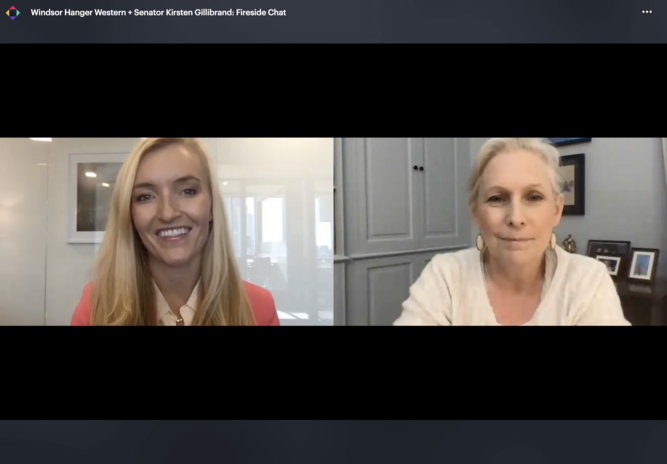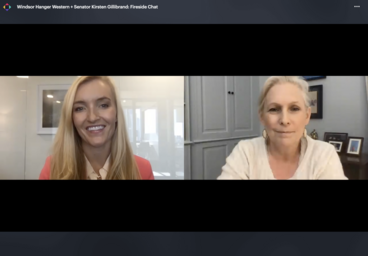People around the world and certainly here in Canada will likely be focusing on one event and one event only today: the US Presidential Election.
Regardless of the results on Tuesday night, (which likely won’t even be definitive) there are major lessons and themes that can be gleaned from another high-profile American election cycle.
On Thursday, Her Campus co-founder Windsor Hanger Western sat down with Democratic Senator Kirsten Gillibrand to answer questions submitted by Her Campus students across the United States in anticipation of the election.
Sen. Gillibrand discussed issues ranging from voter turnout to advice for women pursuing politics, all subjects that pertain to women in Canada as well.
On what are the most deciding factors in this 2020 election, Sen. Gillibrand was clear.
“I think the biggest issue in this election is COVID response. I think people are worried, anxious and fearful about the future and I think one of the things President Trump has done so poorly is use the power of the presidency to help people,” says Sen. Gillibrand.
Following pandemic response as the next most deciding factor is access to health care, she says.
On the steps young people can take to remain politically engaged during and after election season, Sen. Gillibrand is unequivocal in her stance: voting.
“I think it’s really important to win,” she says, “because I think a lot of the structural change that I am certainly looking for won’t be possible if we don’t have the senate.”
In response to how she stays confident in a male-dominated field, Sen. Gillibrand emphasized staying true to yourself and your beliefs.
“If we value ourselves, eventually others will value us too, but what it means is that we have to constantly push back on misogyny, on sexism,” she says, “we have to hold people accountable.”
Sen. Gillibrand also made note of how 70 per cent of political reporters are white and male.
“Well, what do you think they report on?” she asks.
They tend to focus on things they like, not allowing for much fair reporting about the issues that women care about, the senator argues.
Those issues “might be less interesting to young, white, male reporters,” she says, “so again, women just have to keep pushing down barriers in all industries so we can level the playing field.”



